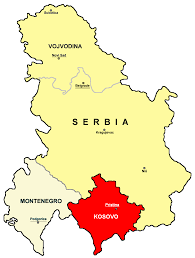
Introduction: The Significance of Kosovo
Kosovo, a small landlocked country in the Balkans, has been a focal point of geopolitical discourse since its declaration of independence from Serbia in 2008. Understanding Kosovo’s journey is essential, as it affects regional stability, international relations, and the lives of its citizens. This article delves into the recent developments in Kosovo, highlighting its importance and relevance in today’s world.
Recent Developments and Challenges
As of late 2023, Kosovo is seeing a profound transformation fueled by both internal and external factors. The European Union’s ongoing negotiations for Kosovo’s integration into the EU framework have taken center stage. In recent months, the EU has emphasized the importance of dialogue between Kosovo and Serbia, aiming to normalize relations that have historically been fraught with tension. The EU’s facilitation of talks has intensified, with emphasis on various issues, including mutual recognition and economic cooperation.
Meanwhile, Kosovo faces significant challenges, including a stagnant economy and high unemployment rates, particularly among youth. The World Bank recently reported that Kosovo’s economic growth is recuperating post-COVID-19 pandemic, but sustainable development remains elusive. Fostering investment and enhancing infrastructure will be critical for the government’s future agendas.
International Relations
On the international stage, Kosovo’s status continues to be a point of contention. While over 100 countries, including the United States and a majority of EU nations, recognize Kosovo as an independent state, several others, notably Russia and several countries in the Balkans, do not. This has led to a complex diplomatic landscape where Kosovo seeks to balance its partnerships and bolster its sovereignty. The recent U.S. support for Kosovo’s aspirations to join international bodies like NATO further illustrates the strategic importance of this young nation in the Balkans.
Conclusion: The Path Forward
In conclusion, Kosovo stands at a crossroads, grappling with both challenges and opportunities. The ongoing dialogues initiated by the EU are pivotal, potentially paving the way for lasting peace and cooperation in the region. For citizens, economic revitalization is crucial for improved living standards and stability. As Kosovo continues its journey toward full sovereignty and EU integration, the outcome will significantly impact not only its inhabitants but also regional dynamics. Global readers should stay informed on Kosovo’s path, as it exemplifies the complexities of nation-building and international diplomacy in the 21st century.



